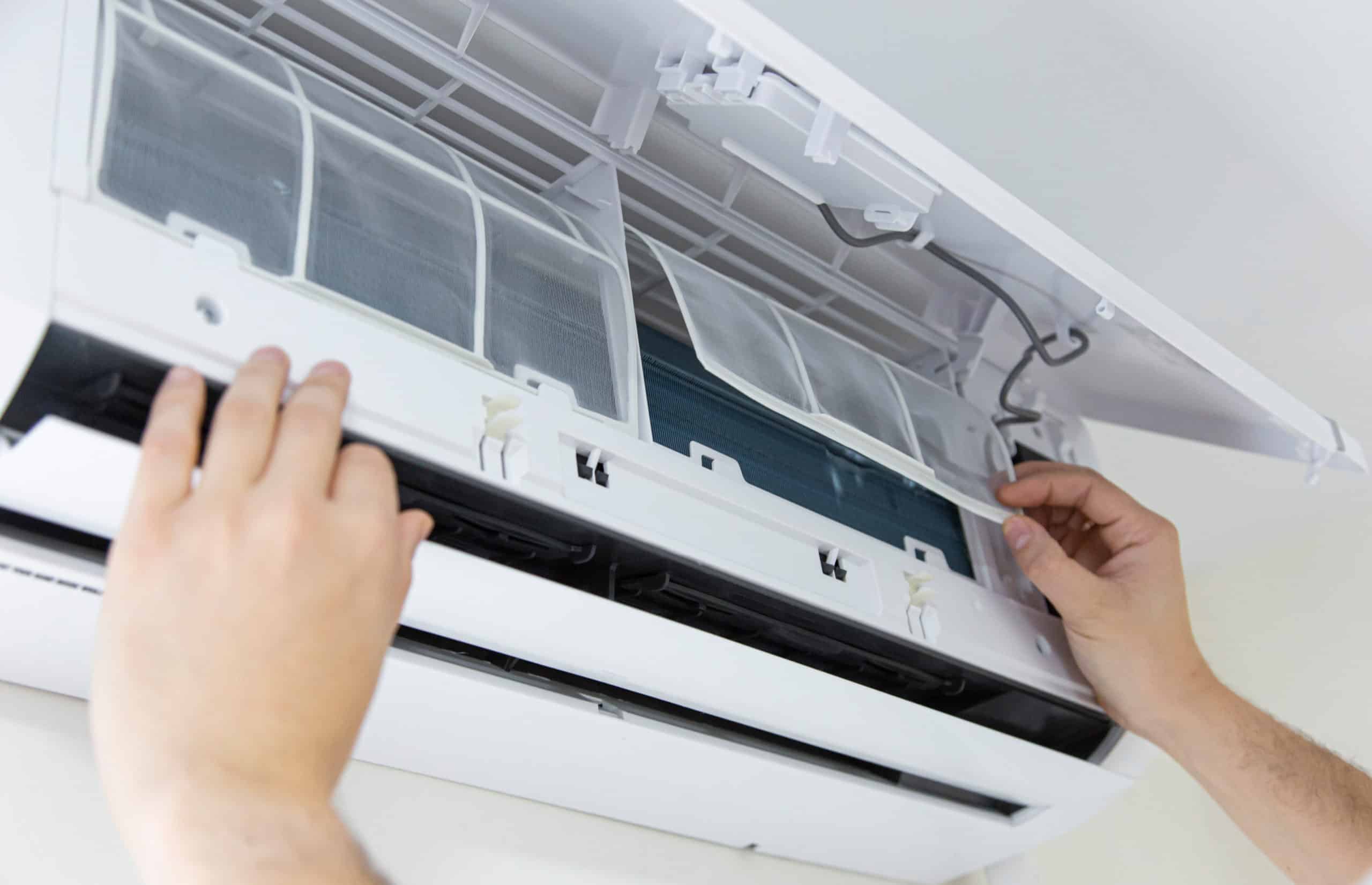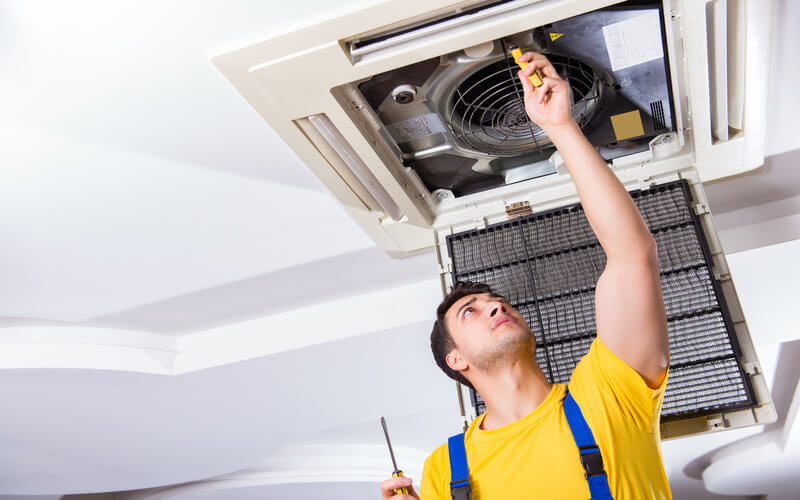The Main Principles Of Ac Fixing
The Main Principles Of Ac Fixing
Blog Article
The Greatest Guide To Fix Air Conditioner
Fix Air Conditioner: Specialist Cooling System Remediation Ensures Your Home Remains Comfy Throughout The Year
Types of Air Conditioning Systems
When taking on air conditioner repair, comprehending the kind of air conditioning system you're handling can conserve time, money, and aggravation. Ever wondered why more info some units cool a room faster than others? Or why particular systems seem to break down more regularly? Let's peel back the layers.
Central Air Conditioning
The Only Guide to Ac Repair Near Me
Envision a cool breeze streaming through a whole home, whispering convenience into every corner. Central air conditioning systems do precisely that. They use a network of ducts to distribute cooled air, depending on a compressor and condenser outside, coupled with an evaporator coil inside. However when this complex monster falters, pinpointing the concern can be like discovering a needle in a haystack.
Split Systems

Split systems are a popular choice for lots of homes-- part indoor system, part outdoor compressor. They offer flexibility and performance, however their dual nature implies repair can include either component. Have you ever heard an odd sound outside your house just to find the indoor unit isn't cooling? That's a traditional sign of a split system glitch.
The Of Ac Fixing
Window Units
These compact warriors fight summertime heat by fitting snugly into a window frame. They integrate all elements into a single box. Their simpleness often implies fewer repair headaches, however neglecting filters or enabling debris buildup can lead to lessened performance or breakdowns.
Ductless Mini-Splits
The Only Guide for Ac Repair
Ductless systems bypass ductwork completely, making them perfect for homes without existing ventilation. They're quiet, effective, and remarkably resilient. Yet, when repairs are required, service technicians must be skilled at handling refrigerant lines and electrical connections-- no small feat.
Quick Reference Table
| Type | Key Features | Typical Repair Issues |
|---|---|---|
| Central air conditioning | Ductwork, whole-house cooling | Duct leaks, compressor failure |
| Split System | Indoor & & outside systems | Refrigerant leaks, fan motor issues |
| Window Unit | All-in-one, simple setup | Dirty filters, electrical faults |
| Ductless Mini-Split | No ducts, zoned cooling | Line leakages, sensing unit breakdowns |
Our Ac Air Conditioner Repair PDFs
Unraveling the Most Regular Air Conditioning Problems
Have you ever wondered why your air conditioner all of a sudden stops cooling throughout a sweltering afternoon? One typical offender is a filthy or clogged up air filter. This tricky villain restricts airflow, requiring your system to work overtime, which not just minimizes effectiveness but can also result in premature breakdowns. Think of attempting to breathe through a scarf taken in dust-- it's tiring!
Another regular misstep is refrigerant leaks. These invisible leaks don't simply decrease cooling power but can likewise harm the compressor, the heart of your air conditioner system. How often do you check for unusual hissing sounds or ice development on the coils? Capturing these indications early can conserve you from expensive repair work down the line.
Beyond the Fundamentals: Lesser-Known Issues
Air Conditioning Repair Near Me - The Facts
Often, the thermostat itself is the nuisance. Miscalibrated or faulty thermostats send out combined signals, triggering the air conditioning to cycle erratically. Ever knowledgeable your air conditioner turning on and off in rapid succession? That's called short cycling, a sly performance drainer that can wear parts faster than you 'd expect.
Electrical issues, such as worn electrical wiring or a malfunctioning capacitor, may prowl below the surface area. AC Repair. These often manifest as a/c systems failing to begin or unexpectedly shutting down. An expert eye knows to test these components with precision tools, something a casual glimpse won't reveal
Specialist Tips for Diagnosing Common AC Problems
The Best Guide To Repair Air Conditioner Near Me
- Inspect and change air filters regularly-- every 1 to 3 months depending upon use and environment.
- Listen for unusual noises like rattling or buzzing that might signal loose parts or electrical faults.
- Check the outside system for debris or clogs that hinder airflow and trigger overheating.
- Look for frost accumulation on evaporator coils, a hint towards refrigerant problems or air flow constraints.
- Check the thermostat settings and recalibrate if the temperature readings feel off.
Quick Referral Table: Manifestation & & Probable Triggers

| Symptom | Probable Cause | Specialist Suggestion |
|---|---|---|
| Warm air blowing | Low refrigerant or dirty coils | Tidy coils and check for leakages instantly |
| Brief biking | Thermostat concerns or extra-large unit | Change thermostat settings and seek advice from sizing standards |
| System will not start | Electrical faults or capacitor failure | Test wiring and replace capacitors as required |
| Water leakage | Obstructed drain line or frozen evaporator | Clear drain lines and inspect for coil icing |
DO IT YOURSELF AC Maintenance Tips
Air Conditioning Repair - The Facts
Ever noticed your air conditioner sputtering like an old engine on a hot summer day? Disregarding subtle indications frequently means more than just a sweaty afternoon-- it's a start to unforeseen AC repair expenses. However what if you could capture those whispers before they become wails? Routine DIY upkeep can be your very first line of defense.
Simple Actions to Keep Your AC Running Smoothly
The 45-Second Trick For Air Conditioning Repair Near Me
- Tidy or Replace Filters: A clogged filter is like attempting to breathe through a scarf. Every 1-3 months, examine and swap out your filters. It improves airflow and efficiency, avoiding compressor pressure.
- Examine the Condenser Coils: Dust and debris serve as invisible blankets smothering your system's cooling power. Gently brush or vacuum the coils, but prevent extreme chemicals that may wear down the metal.
- Examine the Drain Line: When was the last time you glanced at your drain pan? A stopped up drain can trigger water leaks and foster mold development. Flushing it with a vinegar solution regular monthly keeps the circulation clear.
- Seal and Insulate: Are your ductworks whispering leakages? Sealing spaces with mastic or foil tape enhances efficiency and reduce unequal cooling.
Pro Tips Beyond the Basics
- Measure your system's voltage to capture subtle electrical wear before it stimulates huge problems.
- Listen for uncommon hums or rattles-- these acoustic breadcrumbs often indicate loose parts or stopping working motors.
- Keep outside systems shaded however ensure at least 2 feet of clearance around them for ideal airflow.
Ask yourself: Are you hearing your a/c's peaceful SOS or simply waiting on it to scream? Taking time for DIY air conditioning maintenance changes reactive repair work into proactive care, conserving sweat, stress, and yes, cash.
Ac Repair Near Me Things To Know Before You Buy
Why Competence in Air Conditioning Repair Work Matters
Envision this: your air conditioning system sputters and groans throughout a scorching afternoon, leaving you sweltering indoors. Would you trust a novice fumbling with delicate elements, or would you seek the peace of mind of a professional AC professional!.?.!? The complexities of contemporary air conditioning systems require accuracy and experience. A slight miscalculation can intensify a minor malfunction into an expensive catastrophe.
Examine This Report about Repair Air Conditioner Near Me
Unseen Intricacies Behind the Cool Breeze
Many ignore the layers concealed below the sleek outside of an a/c unit - AC Repair. From refrigerant leakages that calmly drain effectiveness to defective thermostats that misread temperature levels, these issues need more than a fundamental toolkit. Specialists have an eager eye for diagnosing problems that average house owners overlook
Essential Tips for Picking the Right Professional
Getting The Ac Repair To Work
- Accreditation and Training: Confirm qualifications; a service technician trained in the most recent a/c technologies is important.
- Experience with Particular Systems: Not all air conditioner units are developed equal; discover somebody familiar with your model's peculiarities.
- Diagnostic Approach: Skilled specialists use advanced tools-- like electronic leakage detectors and thermal imaging-- to identify concealed faults.
What to Anticipate from a Pro's Diagnostic Process
| Step | Purpose | Expert Insight |
|---|---|---|
| Visual Examination | Identify apparent wear or damage | Look for rust or uncommon noises-- a telltale indication often neglected |
| Pressure Checking | Find refrigerant leakages | Subtle pressure drops can hint at micro leakages invisible to the naked eye |
| Electrical Evaluating | Make sure circuit stability | Loose connections can simulate extreme mechanical failures |
Unknown Facts About Air Conditioning Repair Near Me
Why DIY Typically Falls Short
Appealing as it is to play with your a/c system, DIY fixes regularly miss the root cause. For circumstances, complementing refrigerant might temporarily cool your space however neglects leakages that worsen over time. Expert technicians don't simply spot symptoms; they hound the underlying mechanical and electrical faults that sap performance.
The 3-Minute Rule for Repair Air Conditioner Near Me
Questions to Ask Before Hiring
- What diagnostic tools do you use to identify problems?
- Can you explain the repair work process and anticipated outcomes?
- Are you knowledgeable about the refrigerants compatible with my system?
- Do you follow security procedures for handling electrical components?